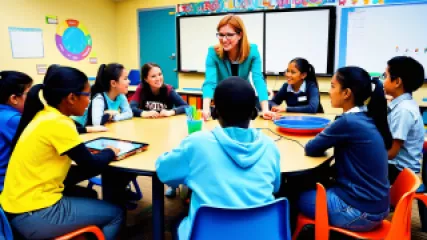Key Findings in Educational Psychology Research
Educational psychology is a field of study that explores how individuals learn and develop within educational settings. Researchers in this field examine various factors that influence learning, including cognitive processes, motivation, social interactions, and instructional strategies. Over the years, numerous studies have been conducted to uncover key findings in educational psychology research, providing valuable insights into effective teaching and learning practices.
The Importance of Educational Psychology Research
Educational psychology research plays a crucial role in shaping educational policies, practices, and interventions. By studying the psychological processes involved in learning, researchers can identify evidence-based strategies that enhance students' academic achievement and overall well-being. These findings help educators and policymakers make informed decisions about curriculum design, instructional methods, and student support services.
Moreover, educational psychology research provides valuable insights into the diverse needs and abilities of learners. By understanding individual differences, researchers can develop inclusive teaching approaches that cater to students' unique learning styles, strengths, and challenges. This research also contributes to the development of assessment tools and interventions that promote equitable education for all.
Key Findings in Educational Psychology Research
1. The Role of Motivation in Learning
Motivation is a critical factor that influences students' engagement and achievement in education. Research has shown that intrinsic motivation, which stems from internal factors such as curiosity and personal interest, promotes deep learning and long-term retention of knowledge. On the other hand, extrinsic motivation, driven by external rewards or punishments, may lead to surface-level learning and limited knowledge application.
Studies have also highlighted the importance of fostering a growth mindset in students. When learners believe that their intelligence and abilities can be developed through effort and practice, they are more likely to embrace challenges, persist in the face of setbacks, and achieve higher levels of academic success.
2. The Impact of Social Interactions on Learning
Social interactions play a crucial role in the learning process. Collaborative learning environments, where students engage in discussions, group work, and peer feedback, have been found to enhance critical thinking skills, problem-solving abilities, and knowledge retention. These interactions promote active engagement and allow learners to construct meaning through dialogue and negotiation.
Research has also emphasized the significance of positive teacher-student relationships. When students feel supported, respected, and valued by their teachers, they are more likely to be motivated, actively participate in class, and demonstrate higher levels of achievement. Therefore, fostering a positive classroom climate and establishing strong teacher-student connections are essential for effective teaching and learning.
3. Effective Instructional Strategies
Educational psychology research has identified several effective instructional strategies that facilitate meaningful learning. These include:
- Active learning: Engaging students in hands-on activities and experiential learning.
- Metacognitive strategies: Teaching students to monitor their own learning, set goals, and regulate their cognitive processes.
- Formative assessment: Providing timely feedback and opportunities for reflection to guide students' learning.
- Multimedia learning: Integrating visual aids, audio recordings, and interactive technologies to enhance learning outcomes.
Furthermore, research has highlighted the importance of adapting instructional strategies to meet the diverse needs of learners. Differentiated instruction, personalized learning approaches, and inclusive practices can help address individual differences in students' abilities, backgrounds, and learning preferences.
4. The Role of Technology in Education
The integration of technology in education has transformed teaching and learning processes. Educational psychology research has explored the potential of various technological tools and platforms to enhance student engagement, motivation, and achievement. Virtual reality simulations, online educational resources, and interactive learning platforms have been found to promote active learning, provide immediate feedback, and cater to individual learning styles.
However, it is essential to consider the pedagogical implications of technology integration. Research emphasizes the importance of aligning technology with instructional goals and ensuring that it complements rather than replaces effective teaching practices. Additionally, addressing issues of access and equity is crucial to ensure that all students can benefit from technology-enhanced learning experiences.
Conclusion
Educational psychology research continues to provide valuable insights into the complex processes of teaching and learning. From understanding the role of motivation and social interactions to identifying effective instructional strategies and exploring the impact of technology, these findings contribute to the ongoing improvement of educational practices and policies. By incorporating evidence-based approaches supported by educational psychology research, educators can create engaging and inclusive learning environments that promote students' academic success and well-being.






